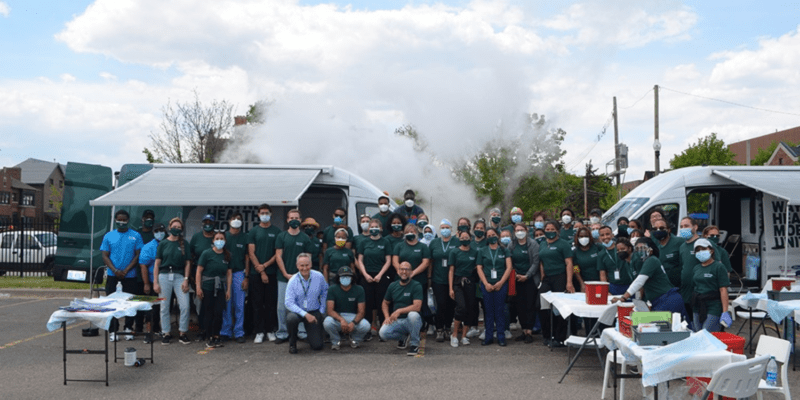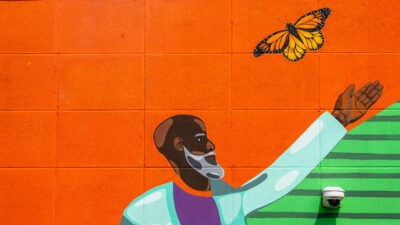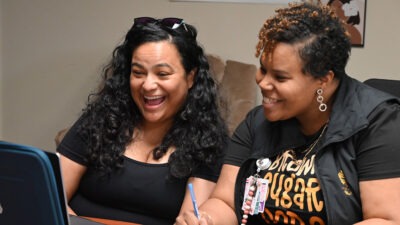DETROIT — For several years, Dr. Phil Levy, an emergency medicine doctor at Detroit’s Receiving and Sinai-Grace hospitals and Wayne State University researcher, and his research team had been working on a data tool called Population Health OutcomEs aNd Information EXchange (PHOENIX) to map hypertension rates in the Detroit.
During the pandemic, the parallels between COVID and heart disease in Detroit were obvious – Black residents were disproportionately dying from COVID-19 at a higher rate.
“The vast majority of people dying from COVID [come] from socially vulnerable communities with a high degree of comorbidities — meaning hypertension, diabetes, heart disease and kidney disease,” said Dr. Levy.
PHOENIX was updated to include data of positive COVID test results. Using this data, Dr. Levy’s team equipped a transit van with testing supplies and later vaccines, and then routed the van to Detroit neighborhoods that were the most vulnerable to COVID. In one year, the van reached 32,523 people through 491 testing and 19 vaccination events. Within 2020, the program gew to five mobile units and now expands its health services to include lipid testing and blood pressure measurement, lead testing and needle exchange programs, mental health and substance abuse disorder screening.
Read more from BridgeDetroit: Heart disease exposes disparities, so medicine goes mobile in Detroit
Read more about the work of Wayne Health’s Mobile Health Units: Community-informed strategies improved Detroit’s COVID response








Comments